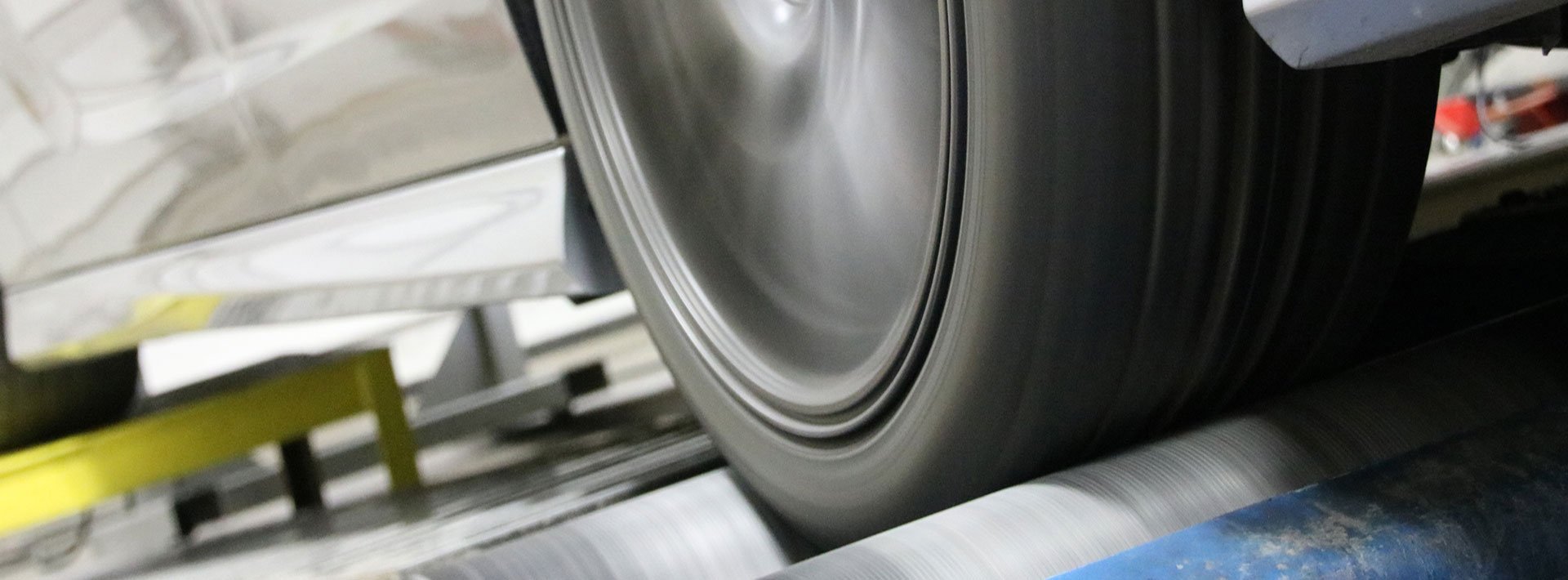JIS D4104 Wheel Radial Impact Durability Test
The JIS D4104 wheel radial impact durability test is a critical procedure designed to assess the resistance of wheels to repeated impacts, ensuring they can withstand the stresses encountered in real-world driving conditions. This test is particularly important for quality managers and R&D engineers working within the automotive sector where durability and performance are paramount.
The standard specifies that the wheel should be subjected to a series of radial impacts using a specified impact machine. The impact energy is delivered at a specific rate, and the number of impacts varies depending on the wheel type and size. This test is crucial for ensuring that wheels meet the stringent requirements set by automotive manufacturers.
The wheel is typically mounted onto an appropriate fixture to simulate real-world conditions as closely as possible during testing. The specimen preparation involves ensuring that the wheel has been correctly cleaned, inspected for any defects or damage, and calibrated according to the standard's specifications. The test results are reported in terms of pass/fail criteria based on the wheel's ability to withstand a specified number of impacts without failing.
The JIS D4104 standard is widely recognized and accepted globally by manufacturers and regulatory bodies. It provides a standardized method for testing wheels, ensuring consistency across different manufacturing processes and facilities. Compliance with this test is essential for automotive companies looking to ensure their products meet the highest quality standards and can withstand the rigors of use.
The radial impact durability test plays a vital role in the development and certification process of new wheel designs. By subjecting wheels to repeated impacts, manufacturers can identify potential weaknesses or areas that need improvement before mass production begins. This not only enhances product reliability but also helps reduce warranty claims and recalls, ultimately leading to increased customer satisfaction.
In summary, the JIS D4104 radial impact durability test is a cornerstone of automotive wheel quality assurance. It ensures that wheels can withstand the stresses they will encounter in real-world driving conditions, thereby improving overall vehicle safety and performance. For those involved in the design, manufacturing, and testing phases of automotive products, this test is an indispensable tool.
| Applied Standards | Details |
|---|---|
| JIS D4104:2015 | This standard specifies the method for determining the radial impact resistance of wheels. It includes details on equipment, specimen preparation, test procedure, and acceptance criteria. |
| ASTM E396-18 | An American counterpart that provides similar requirements for wheel impact testing but with additional considerations for different wheel types. |
Applied Standards
| Standard | Description |
|---|---|
| JIS D4104:2015 | This standard provides a detailed procedure for assessing the radial impact resistance of wheels. It outlines the equipment required, specimen preparation, test procedure, and acceptance criteria. |
| ASTM E396-18 | An American counterpart that specifies similar requirements but also includes additional considerations for different wheel types. |
Why Choose This Test
- Ensures compliance with international standards and regulations.
- Identifies potential weaknesses in wheel design early on, allowing for necessary adjustments before production begins.
- Improves overall product reliability and safety by subjecting wheels to realistic impact conditions.
- Reduces warranty claims and recalls due to wheel failures, enhancing customer satisfaction.
- Provides consistent results across different manufacturing processes and facilities, ensuring quality consistency.
- Aids in the development of new wheel designs by identifying areas that need improvement through repeated testing.
Competitive Advantage and Market Impact
The JIS D4104 wheel radial impact durability test offers significant competitive advantages for automotive manufacturers. By ensuring that wheels meet the highest quality standards, companies can enhance their brand reputation and customer trust. This, in turn, leads to increased market share and stronger customer loyalty. The ability to demonstrate compliance with international standards also provides a valuable differentiator in global markets where regulatory requirements are stringent.
Moreover, the test results contribute to a safer driving experience by ensuring that wheels can withstand the stresses they will encounter on the road. This is crucial for maintaining vehicle stability and reducing the risk of accidents caused by wheel failures. For quality managers and R&D engineers, the ability to conduct this test in-house or through accredited laboratories ensures consistent and reliable outcomes.
In conclusion, the JIS D4104 radial impact durability test plays a vital role in enhancing automotive safety, reliability, and market competitiveness. By investing in this testing process, manufacturers can ensure that their products meet the highest quality standards and are prepared for real-world conditions.





